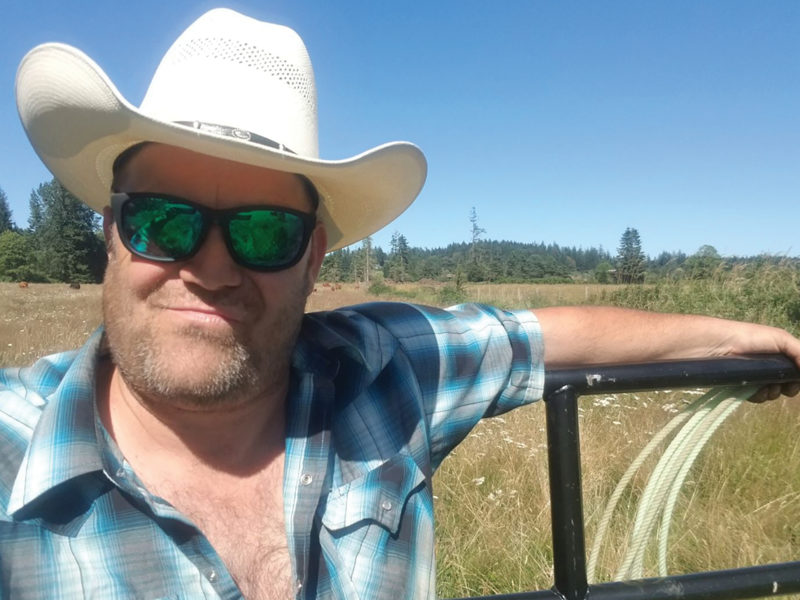COURTENAY – Vancouver Island beef producers have banded together to establish a regional affiliate of the BC Cattlemen’s Association.
Vancouver Island producers have been able to join the association in the past as individual members, but the new Vancouver Island Cattlemen’s Association will give the local industry official standing alongside 17 other regional organizations.
“We do have about 12 direct members, but it is difficult for them to have that same input or seat at the board table [as VICA will],” says BCCA general manager Kevin Boon.
Island producers had a cattlemen’s association in the 70s but beef cattle numbers dwindled to the point that members decided to dissolve the group. But the Vancouver Island herd is increasing and producers want a united voice when discussing the impact of government regulations on their businesses.
In December, a core group of 30 ranchers led by Brad Chappell of Heart of the Valley Farms in Courtenay met virtually to discuss the potential and logistics of forming a BCCA affiliate. Chappell serves as the association’s founding president until the association’s first election in the fall. The inaugural board has 11 members. Ken Ellison of Dellison Farms in the Cowichan Valley is vice-president while Graeme Fowler of G&C Farms in Comox is secretary and treasurer.
The lack of formal representation from Vancouver Island to the BCCA was what encouraged Ellison to support the new association.
“I realized I had no voice, so went to find out what I could do,” he says.
Ellison is concerned about government roadblocks and insufficient programs that affect his 140-head beef ranch.
“Wildlife damage has been a big issue on the Island. When you have a herd of between 50 and 90 elk on your property year-round, they tend to do some damage,” he says.
He is also concerned about access to groundwater.
“The Ministry of Forests, Lands, and Natural Resource Operations took away our water sources a few years back and my permits have still not been approved from 2017,” he says.
The lack of processing capacity, especially in the southern section of Vancouver Island, and farm-retail restrictions are other issues Ellison would like to see addressed at the provincial level.
“A lot of beef producers are doing great things here and there is more power in numbers,” he says.
While it has similarities to other regions within BC, “the Island is quite a bit different,” he says. “We need a voice and representation.”
VICA is in its initial stages, but the group plans to boost Island beef production and address barriers to entry for young producers.
“It’s important that we have access to programs that are run locally and managed provincially,” Chappell says.
The top item on VICA’s agenda is a BC Ferries livestock and agriculture action plan, says Chappell.
“BC Ferries has categorically changed and digressed the ability of Island agriculture to operate here with integration with the mainland. The corporation has driven up the cost of food here and lowered the amount of ag on the Island,” he says.
VICA also wants to work with the province to address water capacity and storage during the fall and winter months, improving water capacity for livestock, irrigation and forage production.
VICA offers three key benefits, says Chappell.
First, the organization will provide opportunities for ranchers to find cost savings within a producer association. Second, the organization will be able to advocate for producers, and advance causes provincially through the BCCA. Most important, VICA will be able to develop programs that meet local producers’ needs.
“Most ag programs (on Vancouver Island) are very broad,” says Chappell. “But if you have programs developed by ranchers for ranchers, you are far more likely to successfully distribute programs to people who need them. That would definitely encourage beef production.”
By early March, more than 130 ranchers expressed interest in joining VICA. For a $150 fee, VICA members gain representation on BCCA’s five committees: public affairs, Indigenous relations and affairs, land stewardship, environment and livestock industry protection.
“The time is right to come together and work as an industry that includes the whole province, so that we don’t have the Island separated,” says Boon. “There are some very unique things about production on the Island that we need to be aware of and advocate for those producers.”


 Beekeepers suffer colony losses
Beekeepers suffer colony losses